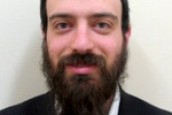Answer: Organ donation is an extremely complex question with many different issues to take into consideration. But assuming that all other Halachik requirements have been met, there are generally two approaches with regard to your specific question:
The first approach is based on Rabbinic precedent set in the 1800s when a team of doctors performed a routine kidney operation on a patient but the patient died on the operating table. The doctors inquired from the greatest rabbis of the time whether they could do an autopsy to see where they went wrong and thereby avoid making a similar mistake in the future. The ruling given was that only if the person whose life could be saved as a result of the autopsy is actually present now and in front of us, could the prohibition against autopsy be waived.
This would mean that if 5 people had been struck with a mysterious illness and one succumbs, an autopsy would be allowed to be performed on the body so that the doctors may study the nature of the disease and learn how to treat the other sick people. However, if there are no sick people at hand, mutilation of the body would be forbidden even though it could potentially save a life in the future. The same principle would apply with regards to harvesting organs from a deceased donor: Only if the needy recipient whose life is in immediate danger is at hand would it be permitted to harvest the organ and damage the body.
The second approach extends this principle further. It states that it's not absolutely necessary for the sick person to be actually present but it is sufficient for the sickness to be a current issue. Therefore, as long as we're aware that there exists a direct need for these organs to save people's lives, it would be permitted to damage the body. This approach would allow the harvesting of a skin from a dead person in order to be placed in a skin-bank to save the life of someone who may suffer severe burns and would require a skin graft. Since we know that burns are not uncommon, it would be permitted to take the skin even though the recipient is not present.
It goes without saying that due to the complexity of the question, for all practical purposes one must always consult with a competent rabbi.
 Rabbi Yaacov Chaiton
Rabbi Yaacov Chaiton